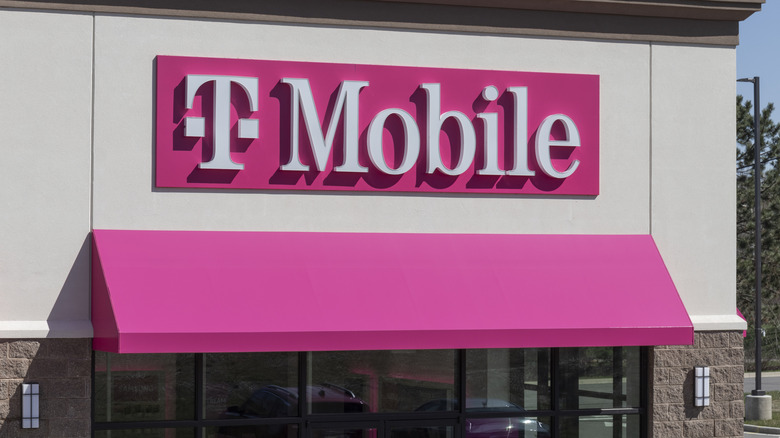What To Know Before Canceling Your T-Mobile Wireless Service
Finding the right wireless plan for you can take a bit of trial and error. There are a variety of carriers out there, each one offering both regular and prepaid data plans with different perks and restrictions. If you find that one plan doesn't really work for you, then the best thing to do is to cancel it and try out a different one. You need to remember, though, that a wireless plan is a form of contract, and much like with any other contract, getting out of it can be harder than getting into it.
For example, let's say you have a wireless service plan with T-Mobile but are looking to take your cellular business elsewhere. The exact means by which you'll cancel your plan, as well as any hoops you have to jump through and fees you have to pay, will vary slightly depending on the precise nature of your plan. If you just visit your nearest T-Mobile store, slap your phone on the counter, and say, "see ya," you might be in for a surprise headache.
Canceling a regular T-Mobile plan
Regular T-Mobile plans are also known as "postpaid" plans, because you pay for it after you've already used it for a period, and the amount you pay depends on what you did with it. Most of the carrier's unlimited data plans fall into this category. It's precisely because they're postpaid that canceling an active plan can cause a handful of monetary headaches.
Firstly, all plan cancellations are future-dated, which means they go into effect when your current billing cycle ends. If you're paying for multiple months at a time, that means your service won't actually end until the stated cycle does, which means you'd have to keep paying for the remaining months.
It's also worth noting that, in the event you got your mobile device as part of your wireless contract or leased it through the JUMP! On Demand upgrade program, you will need to finish paying the device off before you can disconnect completely if you hope to keep it. Even if you try to return the device to a T-Mobile store, you may be charged a restocking fee. If it's an especially high-end phone, you may have a large bill dropped in your lap all at once.
How to cancel a plan
Before you cancel, make sure you get a port-out PIN from T-Mobile so you can bring your established phone number to a different carrier. You can do this by contacting the carrier you're switching to, which in turn will contact T-Mobile to get the necessary information.
To proceed with cancellation, you'll need to either call the service number, 1-800-937-8997, or visit your local T-Mobile retailer. Be prepared for a bit of negotiation, as the representative you speak with will probably try to discern the reason for your cancellation and work out a compromise to keep you in-network. If they offer you an attractive deal, such as one with a lower price or more features, then by all means, stay on board.
If you still want out, you can officially set your cancellation date to the end of your current bill cycle. Once your plan is canceled, you'll no longer be able to make calls with your phone number or access features like voicemail unless you've transferred your number to your new carrier. Things like saved voicemails with your previous carrier may also be lost.
If you still owe a balance after cancellation, whether for missed payments or a balance for your device, you'll get a bill in the mail. You can pay this bill by mailing a check back, visiting the T-Mobile store again, or using the payment portal on the T-Mobile website.
Canceling a prepaid T-Mobile plan
For those who are either in uncertain financial situations or just don't use their phones enough to necessitate unlimited data, T-Mobile also offers prepaid wireless plans. These plans give you a set amount of minutes or data per month for making calls, accessing the internet, and so on. As the name implies, the entirety of your usage is paid for upfront when you first sign onto the plan.
Unlike with a postpaid plan, canceling a prepaid T-Mobile plan is generally much simpler. The carrier already has your money, after all, so it doesn't really make a difference whether you stay or go. Rather than canceling all at once, prepaid accounts are automatically switched to Suspended status when the contracted period runs out.
If you have money in a digital account set up for T-Mobile to draw from, it'll automatically add more months, but otherwise, you would need to add the extra months manually. If your plan remains in Suspended status for 120 days, then your plan will be automatically canceled. Keep in mind that, should your plan be canceled in this way, your phone number and any associated data may be lost. You'll need to manually arrange for a number transfer to a different plan or carrier before this happens if you want to keep it.



